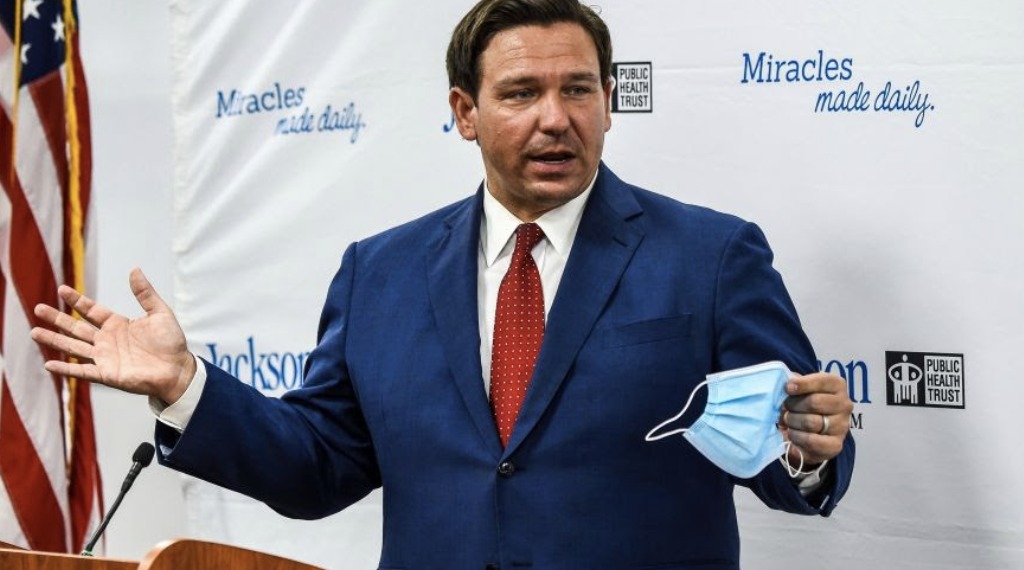
The Trump Administration was rooted in anti-science rhetoric, both in public and behind closed doors. In public, Donald Trump downplayed the pandemic, mocked those who wore face masks, promoted potentially harmful “cures” to COVID-19 such as hydroxychloroquine, and said it’d “be interesting” to see if irradiating people with UV light and injecting disinfectants into the body would cure COVID. In private, he dismantled at least 100 different federal climate policies—rooted in scientific evidence and fact—potentially adding an additional 1.8 billion tons worth of greenhouse gases to the atmosphere by 2035. All-in-all, by looking at the Trump administration’s actions, it is clear they did not believe in science.
Thankfully, with Trump losing the 2020 election and President Joe Biden pledging to follow “science and truth,” it seems that we have a reprieve from seeing anti-science rhetoric issued from the most powerful office in the country. But this reprieve is, unfortunately, only temporary and not complete. Politicians — Republican ones especially — are increasingly embracing a Trump-like disdain towards science.
For the clearest evidence of this, one only needs to look at Ron DeSantis. The Governor of Florida has been one of Trump’s staunchest allies since becoming governor in 2018. In recent weeks, he has made headlines for clashing with the Biden administration over COVID safety protocols — an issue that, unfortunately, has been intensely political. Through said clashes with the Biden administration as well as his refusal to enact stricter lockdowns amidst the massive COVID resurgence in late January, DeSantis has found himself among the GOP’s “top tier”. This is not in spite of his adherence to Trump’s policies over scientific ones, but directly because of that. Now, Representative Matt Gaetz (R-FL) is naming him as the “leader of our movement” and a “strong potential presidential candidate in 2024.”
The rejection of scientific consensus by Republicans is not a new phenomenon — far before the COVID-19 pandemic, the denial of climate change was propagated by dozens of Republicans. What is a new phenomenon, however, is Republicans gaining national popularity and support as a direct result of rejecting scientific evidence. And, as seen with the GOP’s wholehearted embrace of the worst aspects of Trump despite previous remarks renouncing his actions, if something is popular with their supporters, many Republican politicians will run with it. It doesn’t matter how damaging that thing may be.
There are two ways that this can go in the future. The first and most worrying is if the GOP fully embraces anti-science rhetoric and, when in power, passes anti-science policy to rile up their base. Should this happen, we can forget about climate deadlines in 2030 or 2050 — every time Republicans gain control, progress will be stalled. Every time Republicans take control of the White House, expect an environmental policy similar to Trump’s, filled with reckless deregulation and an embrace of “dirty” energy.
This hypothetical would be the worst timeline with regards to the GOP’s attitude towards science. We, as a country, cannot enact meaningful environmental change if one half of the country not only fails to recognize the reality of the situation, but actively pushes false information about the climate crisis. The second and slightly more hopeful route is if this period of openly anti-science rhetoric is a flashpoint in history –– a reactionary response to the collective trauma that COVID-19 has inflicted on us all. With this route, it’s not as if the GOP will suddenly begin supporting Green New Deal-esque policies, but perhaps they would not push misinformation and wage a nonsensical and harmful war on science.
Only time will tell which way things will turn out, though for the sake of our planet and ourselves, we ought to hope that a flagrant anti-scientific platform is not the GOP’s future. That’s not to say that the Biden administration and Democratic politicians can’t take steps to curb future attempts to deregulate and dismantle environmental protections. As the Brookings Institute mentioned, environmental regulation served as an “easy” target of Trump’s deregulation because many “existing policies and regulations had never been enshrined into law.” Should the Democratic-controlled Congress pass concrete legislation into law, any future attempts at dismantling said regulations may face a tougher time getting fully enacted.



